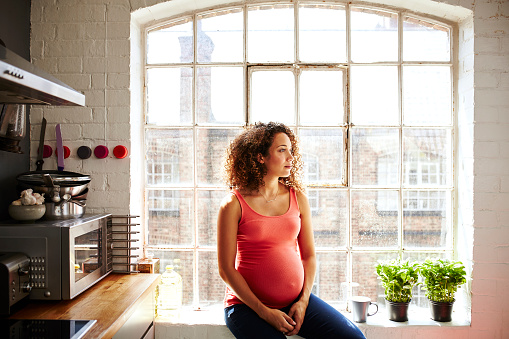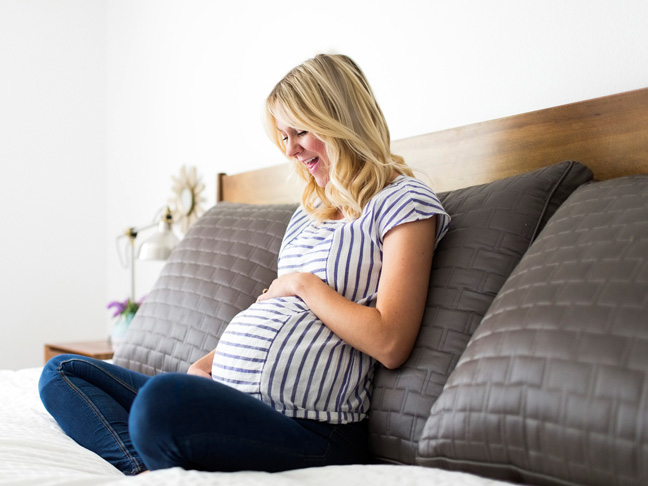
My husband and I were pleasantly surprised — okay fine, we were downright shocked — to find out that after having two kids and rounding the sharp corner toward the big 4-0 we were expecting a third child. When we met our doctor for the first time we felt pretty sure that we knew exactly how that appointment would go given that we had been through it a couple of times before, in the not so recent past. So, imagine my surprise when I learned that I have a geriatric uterus.
Yep, I’m in a fun category called “Advanced Maternal Age.” At first, it was kind of funny and my husband took no time to crack some ridiculous jokes about Benjamin Button growing backward in my ancient lady parts — that is until the doctor started talking to us about some scary sounding tests for genetic and metabolic disorders. We stopped kidding around about skipping the college funds and calling AARP because this conversation had gotten a helluva lot more real.
As it turns out, AMA is not the end of the world, although at first it can feel like one. Here’s what it really means — and what you can do to decrease your risk:
1. You’re more likely to have gestational diabetes and high blood pressure. In a nutshell, that means your body may have a harder time regulating sugar and blood pressure. You can lower your risk of both problems by eating a healthy diet and getting plenty of (pregnancy-safe) exercise. Basically, don’t eat crap and make sure you move every day.
2. You are at a slightly higher risk for birth defects. This is scary as f*ck, I’m not going to lie. But to put it into perspective, there is still an excellent chance that you’ll have a healthy baby. You can assess your own personal risks against statistics and family history with your doctor. Some good news? Your child may be less likely to have certain physical abnormalities that are not chromosomal-based because you’re older.
3. Older mothers are more likely to give birth to multiples. See, after the age of 35 women tend to produce more of the follicle-stimulating hormone (FSH). But fear not: The rate of multiple births is still very low. In 2015 there were 33 sets of twins born per 1,000 births and 113 sets of triplets per 100,000 live births. So, your chances are fairly low.
4. Your baby is more likely to have a low birth weight, weighing less than 5 pounds, 8 ounces at birth. (Your health, diet, genetics, and social behaviors such as alcohol and drug use during pregnancy also play a role). So, it’s important to take your prenatal vitamins every day and be monitored by a doctor.
5. You have a higher risk of miscarriage than younger moms. According to data collected by the CDC and reported by the Advanced Fertility Center in Chicago, by the time a woman is 40-years-old her risk of miscarriage reaches 29 percent. Some of the causes of miscarriage can be prevented or even predicted, but not all; your doctor will monitor your pregnancy closely to help ensure your (and your baby’s) good health.
If you are at an AMA, remember that as long as you try your best to be as healthy as possible and you see your doctor regularly throughout your pregnancy then the odds are in your favor of delivering a healthy baby. Having lady parts that may be considered medically ancient is truly no big deal. I mean, I’d freak out over a gray hair down there sooner than I would about the risk of potential complications (they are statistically very low!). So rub that belly and have faith that you and your baby will be okay.
More for Pregnant Moms:
- Pregnancy Week-by-Week: How Big Is Your Baby this Week?
- Adorable Weekly Baby Bump Photo Ideas to Steal
- 5 Advantages of a High Risk Pregnancy
Photo: Getty








